Photographs: Arko Datta/Reuters Divya Nair
If the answer to all these questions is affirmative, it's high time you took a reality check, else you could be headed for chronic health disorders like bone problems, obesity, cancer, cardiac arrest and PCOS, warn medical experts. Illustrations by Uttam Ghosh
At the age of 21, Anjan Agarwal was a handsome-looking youngster. He would wake up early for college, eat a healthy breakfast cooked by his mother and regularly play football with his colony friends for two hours daily at a nearby ground. While on vacation, he would also go on bird-watching trips.
Soon after graduation, he took up a sales job with an insurance firm, which required him to make field visits, attend business meetings with clients at odd hours in the day to achieve his targets and bring in business for the organisation.
Initially when Anjan began skipping breakfast at home to make up for waking up later each morning, he would convince his mother that he'd eat something at the office. But with time he began missing out not only on breakfast, but also lunch and occasionally dinner. There were days when he survived on tea, coffee and sandwiches while attending long meetings.
Within three months of joining the organisation, Anjan's health started taking a toll on him. He was not getting enough sleep; he was underweight and suffered from low blood pressure. When he visited a doctor, he was advised to eat meals on time and give his body much-needed rest.
After a week's leave, Anjan resumed work, but endorsed an even more hectic lifestyle. Six years on and four promotions later, he is currently serving as regional manager. From commerce graduate to regional manager in so short a time, his journey is similar to many other youngsters' in the city.
But Anjan's family doctor and general physician Dr Prabhu Sahastrabuddhe of Sanjeevani Healthcare, Pune, who offered him medical advice says that while he may be a glowing example of a successful professional, he is an equally bad example of a youngster whose lifestyle had gone wrong. He explains why.
"Anjan, who was once declared medically fit for the NDA (National Defence Academy) with perfect 6/6 vision now wears contact lenses," observes the doctor.
"Today, he owns a car and drives to work. He has no time for physical activities like working out at the gymnasium or enjoying a game of football. He spends most of his time hosting meetings or attending events. Socialising for Anjan means late night after-office parties, where he has at least two rounds of any alcoholic beverage with his team mates, which he says is essential for team building," continues Sahastrabuddhe.
"Anjan also confessed to being a chain smoker since the past one year and the last time I spoke to him, he said he is trying his best to slow down. He is barely 28 and already weighs 91 kgs. He is overweight, has dark circles under his eyes and clearly suffers from lack of sleep, but I know he won't mend his ways so soon," says the doctor.
The perils of an unhealthy lifestyle
Most of us who leave home early tend to skip breakfast. What one does not realise is that this leads to low energy levels and decreased concentration, which can result in headaches and other health problems, especially if you are working on an empty stomach.
Pathologist Vinayak Awasthi from Jeevan Hospital, Pune points out how this unhealthy start to the day nudges young people to binge on ready-to-eat foods that are rich in oil and sugar content, which lead to higher cholesterol and blood sugar levels in the body that are equally harmful.
He says, "Youngsters tend to eat unhealthy off-the-counter food when they are hungry or away from home. These foods contain high calories and salt content. If they exercise regularly and are able to balance it out, there is lesser harm done. Unfortunately, though, people find time to eat but not to exercise, which is why they complain of high blood pressure and elevated sugar and cholesterol in the body."
Some of the other commonly reported problems faced by youngsters include addiction to smoking and/or alcohol consumption, cardiac problems, malnutrition, obesity, diabetes, sleeplessness, stress, depression and polycystic ovarian syndrome (in young women) -- and interestingly, each of these is related to another.
Also read: Top 10 healthy breakfast ideas at your desk
Also read: Top 15 healthy breakfast ideas
Cardiac problems
Cardiac surgeon Dr Ashok Bhujbal from Health Care Hospital, Mumbai discusses the case of a 23-year-old management student who recently underwent heart surgery and points out how negligence could lead to cardiac problems among youngsters.
"The patient initially complained of occasional chest pains. He was on medication for eight months. But two months ago, he went into cardiac arrest. His heart functioning rate had reduced. He was underweight (34 kg) and since he was staying in a hostel and his parents were away, there was no one to attend to him but his college professor and a few friends."
"The boy was clearly negligent towards his health. He complained of a rigorous schedule. He disliked the food served in the college hostel and would sometimes go all day without a proper lunch or dinner. His heart function rate was very low and hence he had to be operated upon. He was suffering from cardiac cachexia."
Cardiac cachexia is a syndrome where the body tends to lose an abnormal amount of weight and it can happen to anyone who is negligent of his/her health and nutrition.
"Cachexia starts with heart failure, where the blood is not pumped in and out appropriated, thus diverting it back to the intestines and the liver. As a result the patient suffers from chest pains, causing a drop in appetite and sensations of nausea," he explains.
Cardiac complications like cachexia need to be identified early and treated in time. When the heart is unable to perform its activities, it begins to affect the overall functioning of other organs as well, which makes the problem a chronic one.
However, the key to preventing them is by regulating your diet -- supplying your body with appropriate nutrition and following a healthy lifestyle. To improve the functioning of your heart, you must reduce excessive intake of salt and cholesterol-rich foods and keep a check on your weight as well.
Also read: Young and reckless: How stroke affects YOU
Lack of physical activity
The human body is designed for movement. However, about 70 percent of young working professionals have a sedentary work culture, which restricts them from adequate physical activity.
For instance, most of you are sitting in front of your computer screens for about six to eight hours a day. Sometimes you don't even get to leave your desk, unless you are required to. Experts explain how deprived physical activity is the primary reason why people feel lethargic and are unable to focus and deliver results on time.
"Most young people who come to my fitness centre cannot climb stairs beyond one storey, because they are used to escalators and elevators -- and they are barely in their 20s," shares Amit Achrekar, a fitness expert at Fit Well Gym in Mumbai.
"They face respiratory problems and often give up on activities involving physical stress. Some of them stop coming to the gym because their bodies cannot take it anymore. But they are not ready to work at it."
"Young people often ignore the importance of physical activity. When you don't move or exercise your muscles and ligaments and limbs, they become stiff, thus adding to friction. It's just like a car engine that needs to be oiled from time to time. Physical activity not only helps you develop flexibility, but also keeps you energetic and fit for life. When you don't move, the blood flow is restricted, leading to problems like varicose veins and other cardiac problems," he adds.
You must indulge in a healthy physical activity for at least 20 minutes a day. Sweating also helps you release harmful toxins, which will not only cleanse your body but also improves the way it breathes. It's a great way to lose extra fat and keep yourself active. Also, one must drink plenty of water so that your body is suitably replenished.
While emphasising the importance of physical activity, Achrekar jestingly adds, "Running after buses, trains and clients does not count!"
"You have to sweat it out every day or at least once a week, by playing a sport or game you enjoy. You may even try yoga, trekking, power walking or jogging, depending upon what suits your mood and convenience. But you must start today," he insists.
Also read: 11 health hazards of watching TV
Also read: 7 ways your job could shorten your life
Type 2 diabetes
Type 1 diabetes is when your body stops producing insulin or produces too little insulin to regulate the glucose levels in your blood; Type 2 diabetes occurs when the insulin in the body fails to respond and the consumed sugar content is not absorbed into the cells, thus increasing blood sugar levels.
As a result, the pancreas will have to produce extra insulin to make up for the increase in demand, but when it fails to do so, one develops resistance and thus suffers from Type 2 diabetes.
The common reason why young people face Type 2 diabetes is over-consumption of sugar-rich foods like white bread and aerated drinks, combined with lack of appropriate physical activity.
There is no age limit for the occurrence of Type 2 diabetes.
Bariatric surgeon Dr Ramen Goel of the Fortis group of hospitals in Mumbai tells us an easy way to identify if you are suffering from it: "Those who suffer from restrained insulin disorder will have dark skin surrounding the neck area. It's a sure sign of insulin dysfunction." He advises that if you endorse a sugar-rich diet and do not exercise, you should get your insulin levels checked at least once a year.
If diagnosed early, you may be able to control Type 2 diabetes through medication, diet regulation followed by exercise.
"The best way to prevent diabetes is to switch your diet. Choose wheat bread instead of white and cut down on aerated drinks," suggests Goel.
Also read: 50 million Indians diabetic: Make sure you're not
Also read: 10 ways to prevent diabetes
Weight issues and obesity
Dr Sahastrabuddhe adds that about 70 percent of young adults today are "overweight, face lung and cardiac problems and are victims of stress and depression. And by young, I mean people who are below the age of 30," he firmly asserts.
Doctors and medical experts from across the country also point out how some of these problems were unheard of until a few decades ago and attribute them to unrealistic lifestyles.
"Young Indians are living in an unrealistic world today-- they have unrealistic expectations of life and endorse larger-than-life activities that are fatal to both one's physical and mental wellbeing. Until a few years ago, issues like obesity were rarely heard of. But today, one in every three youths is obese," observes Dr Veena Shinde, gynaecologist at Lifecare Medical Centre, Mumbai.
In fact, an unpublished survey conducted by a group of doctors in Chennai in mid-2011 revealed that nearly 70 percent of Indians in mega-cities such as Mumbai, Delhi, Bangalore or Chennai are overweight or obese.
"According to the survey, 50 percent of respondents who reported a higher Body Mass Index (BMI) were in the age group 15-25," shares Dr Manishankar Krishnamurthy, chief surgeon of MK Hospital, Chennai.
Meanwhile, a parallel study conducted by ASSOCHAM (Associated Chambers of Commerce and Industry in India) between October 2010 and March 2011 revealed that youngsters in the age group of 12-25 years are using diet pills, fat-burners and also resorting to self-induced vomiting in order to stay slim and look attractive.
When asked to comment upon the situation, Dr Goel confirms that the growing number of obese youngsters is a reality.
"Young people do not control their eating habits and when combined with a lack of exercise, this leads to weight gain and obesity. Being overweight may also lead to higher blood cholesterol levels, which affects the normal functioning of the heart and when left uncontrolled can also prove fatal," he warns.
Dr Goel also suggests some quick solutions. "Young people must avoid indulging in food comprising white flour (maida), white bread and avoid fried foods. Occasional indulgence in the above foods should be restricted to once a week."
Also read: Top 10 health hazards of obesity
Also read: 10 ways to get rid of obesity
Malnutrition
While an increasing number of young people are obsessed with losing weight, doctors point out that there is a parallel segment of youngsters who are eating less and falling prey to malnutrition.
A deficit of essential nutrients like calcium, proteins and minerals in your daily diet can go well beyond dropping a few pounds -- it can also lead to anorexia and other related side-effects.
"If you don't have food on time, you may also develop acidity and stomach ulcers. So the best way to avoid these problems is to eat meals as scheduled," explains Dr Goel. "You must lose weight to look healthy, not to look thin."
Adds Dr Sahastrabuddhe, "Poor appetite makes you feel dizzy, induces drowsiness and also leaves you underweight. A lot of people think that losing weight is good, but if it's at the cost of poor nutrition, I would say it's not healthy at all."
In order to stay healthy, you must include nutrition-rich foods like milk, curds, nuts, fresh fruit and green leafy vegetables in your diet.
To find out whether you are overweight or underweight, it is important for you to know your Body Mass Index. Your BMI is your weight in kilos, divided by the square of your height in metres.
For instance, if your weight is 60 kg and your height is 1.6 metres, your BMI will be 60/1.6 x 1.6 (2.56) = 23.44.
The normal BMI is between 18.5 to 24.9. So if your BMI is less than 18.5, you are underweight; if it is more than 25, you are overweight.
Also read: 5 super foods that help fight fatigue
Also read: Skinny? 10 tips to gain weight
Bone and joint problems
"If your work involves using a computer or laptop for long hours, you must ensure that the computer is at least a good two feet away from your body and the screen is placed at eye level -- not too high, not too low. If you tend to slouch forward too often while working, you could end up hurting your spine," says Dr Ashok Chaudhari, orthopaedic surgeon, SL Raheja Hospital, Mumbai.
The right posture also involves using the right chair. "The chair should ideally have an armrest. You should be able to balance your body weight the right way."
"For instance, a lot of people tend to take the literal meaning of 'lap'top quite seriously. Whenever you are using a laptop or a desktop, use it on a table. Also, while using the mouse, you must rest your palm completely on the mouse and also support your wrist suitably on the table. It is also advisable to use a mouse while surfing the Internet, rather than a trackpad. Extensive arm activity can lead to carpal tunnel syndrome (excessive pain on the upper inside area of the wrist).
You may be surprised to learn that too much text messaging can also be dangerous, as it leads to De Quervain's syndrome, a new health issue affecting young people due to increased thumb activity.
Dr Chaudhary elaborates. "De Quervain's is a new health syndrome identified among young adults where the tendons in the thumb are affected due to excessive pressure activities like rigorous text messaging, playing multimedia games etc. The mucles in your fingers are not trained for rigorous activity around the clock. So you must try to give them a rest from time to time," he advises.
Meanwhile, Dr A M Rajani, a knee surgeon from Mumbai who works with hospitals like Saifee, Cumballa Hill and Fortis says that lack of physical activity can also lead to bone and joint problems, especially pertaining to the knee.
And it's not just lack of activity that is causing these problems -- Dr Chaudhary explains that excessive physical activity has also led to the same trouble.
"The early 20s are the wrong age to have joint problems. But these days, youngsters come to orthopaedics to treat injuries, some of them caused due to excessive physical activity as well. For instance, there are youngsters who spend enormous amounts of time in the gymnasium to stay fit and healthy. They either don't hire the right physical trainers, or go against the expert and exert too pressure on their bodies, which affects their joints and muscles," he says.
Till early 2000, knee and joint problems were usually reported among senior citizens and people above the age of 40, but over the years the lines have blurred.
"Ligament tear and joint problems occurred in elder citizens due to excessive or inadequate physical activity causing wear and tear to ligaments over the years. That's quite understandable. But today, the patients who come to me are mostly young adults, who are in their early 20s," Dr Rajani says.
Dr Choudhary suggests you exercise caution. "If treadmill activity does not suit you, you may try brisk walking to avoid being injured. Also, you must use the right shoes for jogging and walking."
He also suggests that professional organisations must introduce ergonomically designed chairs for their employees. "I would suggest that every organisation realise this health concern and try to provide ergonomically designed chairs for all employees, because the office is where people spend most of their time each day. And if young employees start facing such problems, they will be compelled to take sick leave, which is to their employers' disadvantage. A healthy work culture involves a lot more than offering good pay packages to employees," he says.
Also read: Effective home remedies for back pain
Alcohol consumption and smoking
Walk down the stairs of your own office building and chances are you will be forced to take the elevator -- it's likely that a large number of professionals are crowded around smoking on the stairwell. The effects are slow, but definite and chronic, warn experts.
"Inhaling smoke is like feeding tar to your lungs. The more you smoke, the more you clog your lungs and reduce your heart function," says Dr Sahastrabuddhe. If you don't control the consumption of tobacco, you could be a victim of hypertension, besides other ailments like heart attacks, bronchitis, and various forms of cancer affecting the pancreas, lungs, mouth and larynx. Immediate effects are cough, dehydration and loss of appetite. Even passive smoking has the same side effects, but of a lesser intensity.
"Smoking and alcohol act like a slow poison. The effects may vary among individuals, depending on how each one copes and gradually worsen over time. While smoking can lead to respiratory disorders, the most fatal side-effect is lung cancer," says Dr Veena Shinde
Meanwhile, alcohol can be equally harmful. Elevated levels of alcohol in the blood can hamper concentration levels due to improper functioning of brain cells and also affect the functioning of the liver in the long run. It can lead to urinary disorders, dehydration and sometimes anterograde amnesia (the inability to create new memories), warn experts.
"Most young professionals tend to party late at night after work. If they are staying away from their parents and family, it becomes difficult to exercise control after a particular age. And most of the time, they approach doctors when they have already crossed the threshold limit. Sometimes even we find it difficult to save such extreme cases," laments Shinde.
While you may try to limit your consumption of alcohol, you must definitely try to quit smoking at the earliest.
Also read: Can drinking alcohol affect your fertility?
Stress and depression
When you are working beyond your normal schedule and are not able to give enough time to your body to rest, you are leading a stressful lifestyle.
A stressful lifestyle is a clear indication of the fast-approaching physical and mental downfall of an individual, because the immediate outcomes are sleeplessness, lack of concentration, poor appetite, frequent headaches, panic attacks, hypertension and the inability to take decisions.
In Dr Sahastrabudhe's words, "When you are under stress, you don't find enough time for social activity. Your mind is working under pressure and you are unable to concentrate and take decisions. You clench your fists, jaws and grind your teeth. All your body muscles are reacting to your stress in a negative way. How are you supposed to think straight?"
Frequent headaches are the first thing you need to take care of, he says.
While slipping in a painkiller or antibiotic may seem like the best thing to do when you have a headache, they are equally bad for your body. Instead, "you must take frequent breaks between work to ensure that you think straight and clear. When the mind is clear, you are able to take faster decisions. It also helps you think positive."
Depression is the other extreme of a hectic work life, warns Dr Veena Shinde.
"You suffer from depression due to an inability to perform the tasks assigned to you. Depression has equally harmful effects on the body. It makes you feel suicidal, isolated and insecure about your talents," says Shinde.
Dr Ashok Bhujbal says depression can also affect the heart. "When you are depressed, your blood levels are abnormal -- they are either very high or low. In extreme cases, patients also suffer from coronary heart diseases," he adds.
The best way to fight depression is to endorse a positive attitude towards life. "Do not compare yourself with others. Each one is gifted. If you are unable to finish a particular task, find out the reason and work on it rather than feeling helpless and finding an excuse to quit. For all you know, you may not even be at fault," suggests Dr Sahastrabudhe.
Also read: 10 tips to beat STRESS at work
Also read: 22 superfoods for stress relief
Sleep disorders
"When a person does not get 6-8 hours of sleep a day, their bodies will start showing withdrawal symptoms like lack of concentration, incessant headaches, watery or swollen eyes, dark circles etc, which are equally harmful in the long run."
Sahastrabuddhe further remarks that sleeplessness is commonly observed among students who are pursuing professional courses like engineering, medicine, law and management. Besides, it is also common among working professionals who work for more than 12 hours a day.
Unfortunately, the hectic lifestyle demands more than 24 hours in a day and less than six hours of daily sleep. This in turn leads to sleeplessness and sleep disorders like insomnia.
"A lot of youngsters are either busy preparing for some exam, making an office presentation or are partying late at night after work. They are exerting too much and working beyond the limit of what their bodies can take," states Dr Veena Shinde.
You must learn to prioritise tasks; do one thing at a time and give the body some rest at the end of the day.
Also read: Are you a workaholic?
Also read: Working in night shift? Here's how to manage your sleep
Also read: 10 superfoods to help you sleep well
Polycystic Ovarian Syndrome
"In Polycystic Ovarian Syndrome (PCOS), which occurs in women aged 12-40 (those who have an active menstrual cycle), the number of eggs (ova) in a female body is reported to be abnormally larger than usual. This generally happens when your hormones are dysfunctional, either due to stress or due to a similar genetic history in the family," explains gynaecologist Vidyadhar Iyer, who goes on to share a case study.
Sapna (name changed to protect identity) was tested positive for PCOS at the age of 27. She worked as an officer in a local bank in Chennai and had been facing irregular periods. Sometimes she would even have two cycles a month. She also confessed that she had gained weight quite abnormally lately. Disturbed by the situation, she approached a gynaecologist who asked her to take a few medical tests. The reports suggested that she was suffering from PCOS and was also slightly diabetic.
Gynaecologists are of the opinion that extended work hours are among the reasons why a lot of young women are facing this problem, another rising concern among young female adults.
However, Dr Ramen Goel attributes the occurrence of PCOS in young women primarily to restrained functionality of insulin in the body. He says in a majority of the cases, women who suffer from PCOS also end up testing positive for diabetes. He says all these issues are interdependent on one another.
While there may be many Sapnas and Anjans in our society today who work late, eat the wrong foods, ignore the changes in their bodies and move on, medical experts conclude that if not addressed immediately, the trend of ailing health is headed for the worse.
Dr Iyer is of the opinion that "changes in lifestyle should not be seen as an excuse to exploit your physical and mental state of health. That's what modern day youngsters have been doing these days. We have to adapt to change, but sometimes we have to slow down, respect our bodies and adhere to nature's ways."
His advice to youngsters is simple -- "Eat healthy, sleep early and most importantly, learn to appreciate what you have. Live to the maximum for today, but be healthy enough to face tomorrow."
Also read:7 screening tests that every woman needs
Expert tips for a healthy living
- You must cut down on your consumption of unhealthy food (junk food, food rich in calories, oil and sugar content).
- Do not indulge in food comprising white flour (maida), white bread and avoid fried foods. Occasional indulgence in the above foods should be restricted to once a week.
- Nibble on energy-rich foods like apples, oranges and assorted nuts to keep you active through the day.
- Do not skip your breakfast or sleep on an empty stomach. Hunger is one of the primary causes of sleeplessness and headaches.
- Cut down on your consumption of alcoholic beverages.
- Most importantly, quit smoking.
Exercise
- Include exercise as part of your daily routine. Indulge in active sports like tennis, badminton, squash, cricket, cycling or swimming. You will only enjoy losing weight and staying in shape this way.
- Whenever possible, choose the staircase over the elevator.
- Do not sit in one place for a long time. Find excuses to move away from your work desk so that there is some physical activity occurring.
- Keep your weight under check and endorse a stress-free lifestyle.
Mental health
- Make a list of your activities for the day and allot deadlines for the same. Ensure that you stick to the deadlines.
- Do not overwork at the cost of your health and sleep. What is the point of finishing a presentation at 3 am in the morning and not being able to deliver it in the office effectively for lack of sleep?
- Each one's abilities and thresholds are different; so don't compare your performance to that of others. A little healthy competition is good, but indulge in it only so long as it motivates you to better your individual performance.
- Do not overload yourself with after-analysis of a given situation. If you feel stressed or overworked, talk to a friend and relax. You cannot think straight when you are under stress.
- If you feel depressed and cannot find a way out, seek help from a supportive elder whom you trust and who you think will be able to give you a practical solution. There is no such thing as an impossible situation. When in distress, seek immediate help.
For women
- Include calcium and protein-rich foods like milk and nuts like almonds and walnuts in your diet.
- Check your weight at least once a month. If you observe any abnormalities or discrepancies, consult a doctor and get a medical check-up done.
- If you face irregular or abnormal periods, you must consult a gynaecologist immediately.
- Get an insulin test done at least once a year to find out if your insulin is working fine.

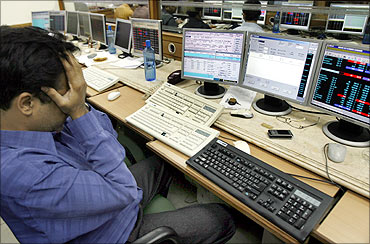
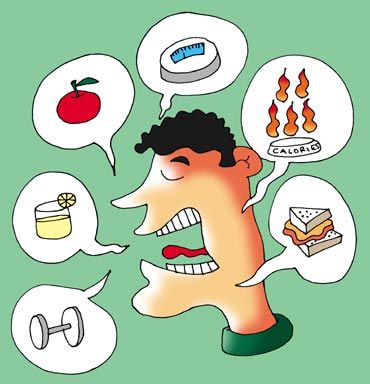
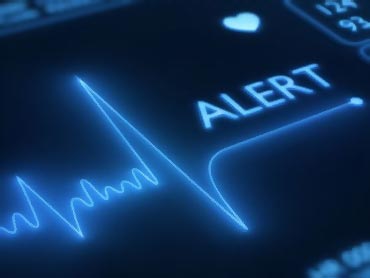
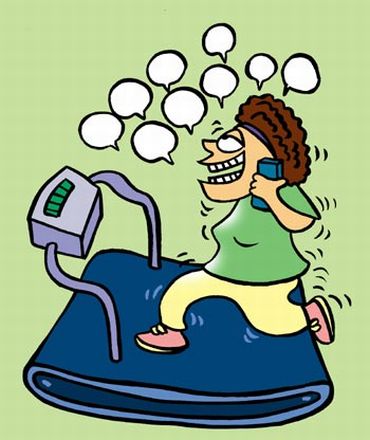
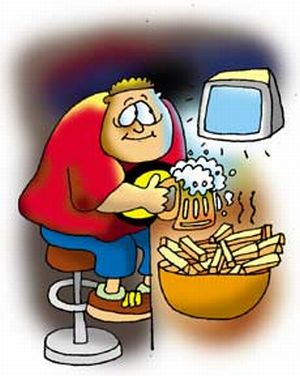

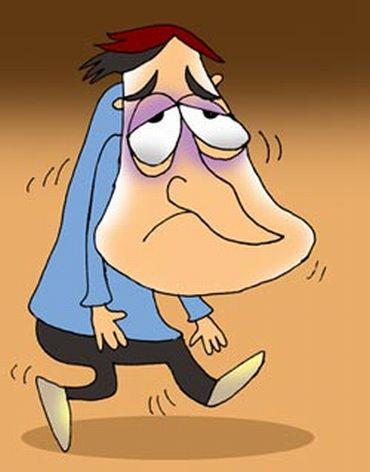

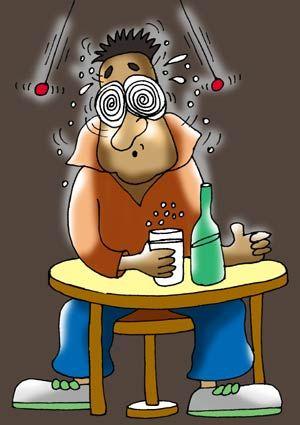
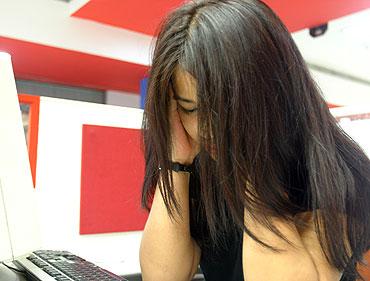



Comment
article